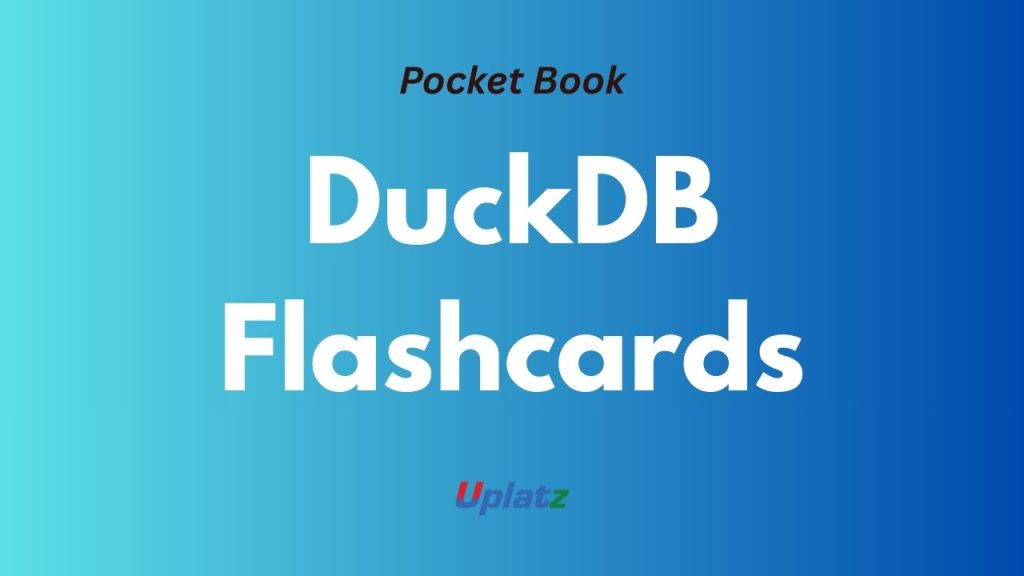
🦆 DuckDB Flashcards
DuckDB flashcards for quick study! This in-process OLAP engine is popular with analysts and data scientists who want fast local analytics without running a server. Use the cards below to revise what it is, where it runs, supported formats, extensions, and ideal use cases. You’ll also find learning resources and related guides.
🔍 What is DuckDB?
It’s an in-process SQL OLAP database management system optimized for fast analytics on small to medium-sized datasets.
🛠️ Where does it run?
It runs directly within applications — like Python, R, or even a browser — without a separate server process.
🚀 What makes it unique?
It’s lightweight, embeddable, and designed for lightning-fast analytical queries with zero configuration.
📦 What data formats does it support?
It can read Parquet, CSV, JSON, Arrow, and more — often without any loading or import steps.
📊 What is it ideal for?
Perfect for local analytics, notebooks, prototyping, and fast exploration of datasets in memory.
🤝 Can it integrate with Pandas?
Yes — tight integration allows fast SQL queries on dataframes.
🧬 Does it persist data?
Yes — write to disk-based databases or query in memory, based on your needs.
🧪 Is it good for data science?
Absolutely — supports quick experimentation and analysis in Jupyter notebooks and scripts.
🔌 What are extensions?
Extensions like HTTPFS and spatial add capabilities, even for web-based environments.
📚 What SQL dialect does it use?
Largely compliant with PostgreSQL-like SQL syntax, so it’s easy to pick up.
Quick tips for getting value fast
- Start simple: Query Parquet or CSV files directly with SQL—no ETL step needed for exploration.
- Stay local: For notebook work, this engine keeps compute close to your data and avoids server overhead.
- Mix & match: Combine Pandas dataframes with SQL for clear, reproducible analyses.
- Persist later: Begin in memory; when your workflow stabilizes, switch to a file-backed database for durability.
- Extend wisely: Enable only the extensions you need (e.g., HTTPFS for remote files) to keep things lean.
Learn more & related reading
- Official docs: DuckDB Documentation
- On our site: Uplatz Blog – Data & Analytics Guides
